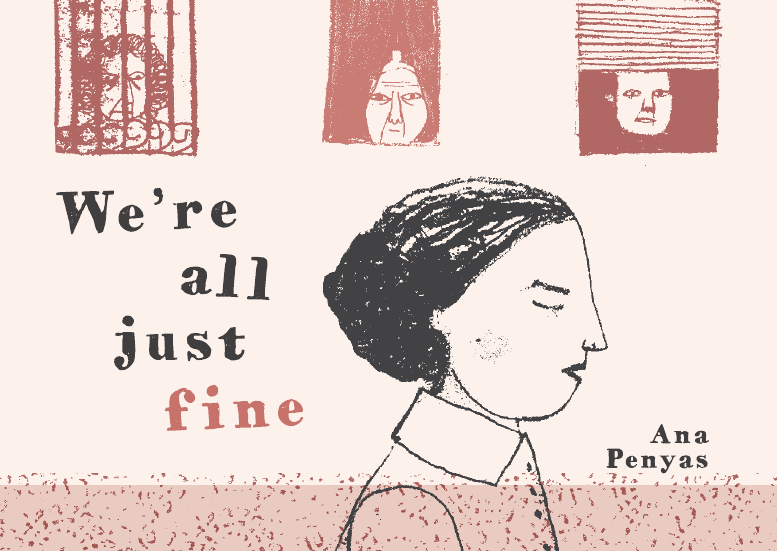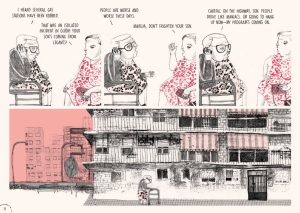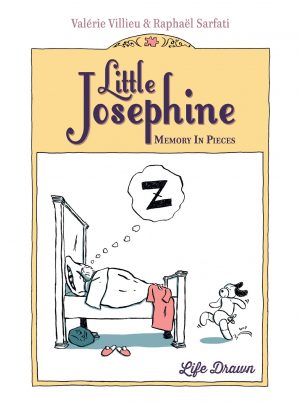Review by Frank Plowright
Consideration of lives led by the elderly is a rarity in graphic novels and when they do feature it’s usually briefly with the context being their younger lives, or more recently with the boom in medical-themed books, in connection with illness and infirmity. It makes We’re All Just Fine stand out, as while the earlier lives of Maruja and Herminia feature in snippets, Ana Penyas has a greater interest in how life is for her grandmothers now.
The title notwithstanding, Maruja’s life is one of continuing restrictions as ageing is a degrading process. She needs a walker to get about, there are times she’s unable to lift herself from the chair to go to the toilet, and she’s being tested for Parkinson’s Disease. Herminia’s situation is better in one respect as she’s healthier, but lonely as her many children all have busy lives and rarely visit. When they do, she can be a secondary concern to their daily annoyances. In between detailing the present day Penyas slips back into the past showing these were once vibrant people with lives of their own.
Penyas defines people distinctively well with a striking form of wonky art, expressive instead of realistic and coloured largely with pencil. She mixes line art with with a dark pink wash, and there’s a great awareness of texture. Pink highlights on cheeks, though are a quirky distraction.
We’re All Just Fine won the National Comic Award from Spain’s Ministry of Culture in 2018, high recognition for a first graphic novel, but it’s an experience that probably plays better in Spain where the cultural references defining people are universally understood. Because Spain suffered so long under a fascist dictatorship it doesn’t need any explanation there, but many English language readers aren’t going to be aware of Spain’s 20th century history, and little context is provided until an essay at the end pointing out the subtle touches. It means in English this is best when considering the present, and a frank section of Herminia looking back at old family photographs with the comprehension of an older woman is a touching highlight.
It comes as rather a surprise to discover in the explanatory afterword that the title refers to living through the fascist years rather than a stoic acceptance of being old. As a consideration of the difficulties of ageing We’re All Just Fine is a touching testament in English, but that’s only half the story and having to consult the afterword for the remainder is unsatisfying.





